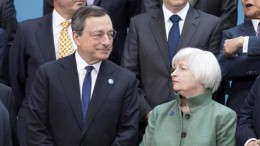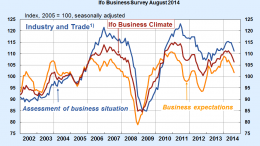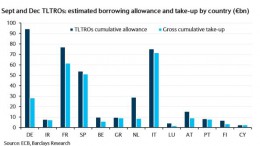ECB stimulus speculations keep circulating
MADRID | The Corner | The expectation that the ECB will finally announce a QE program after Draghi’s words at Jackson Hole and the confirmation that the ECB would have hired Blackrock for advice on launching a ABS program continue to nurture the Eurozone bond rally and thereby the credit one. Yesterday many bond markets in Europe returned to record lows with improvements in 10 years of 3bp (Germany), 2.5bp (Spain) and 2bp (Italy).






